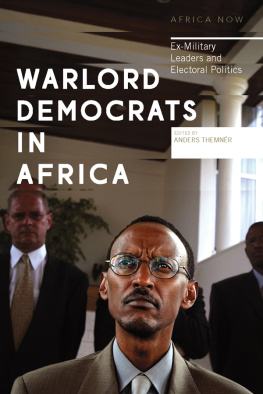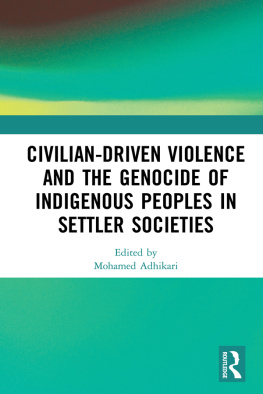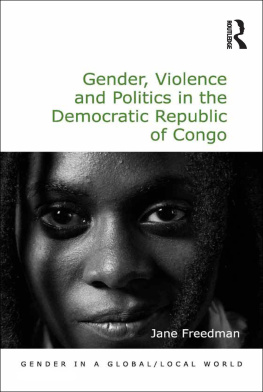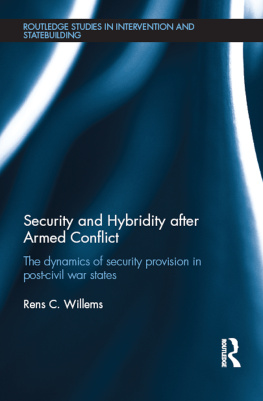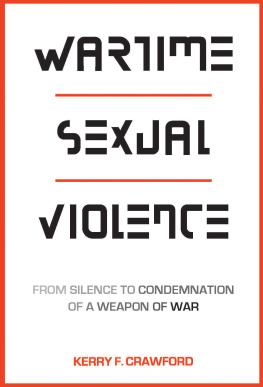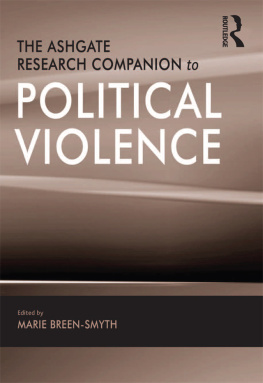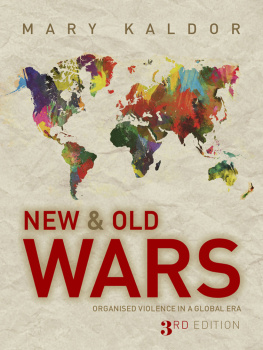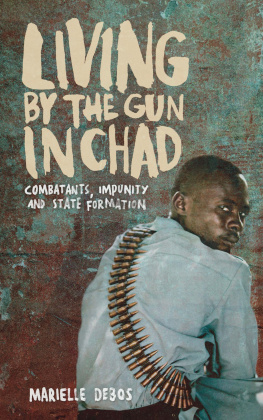
Violence in Post-Conflict Societies
This book compares post-civil war societies, analysing why some ex-combatants return to organized violence and others do not.
Even though former fighters have been identified as a major source of insecurity, there have been few efforts to systematically examine why some ex-combatants re-engage in organized violence, while others do not. This book compares the presence or absence of such violence in different ex-combatant communities former fighters that used to belong to the same armed faction and who share a common, horizontal identity based on shared war- and peacetime experiences in the Republic of Congo (ex-Cobras, Cocoyes and Ninjas) and Sierra Leone (ex-Armed Forces Revolutionary Council, Civil Defence Force and Revolutionary United Front). The main determinants of ex-combatant violence are whether former fighters have access to elites and to second-tier individuals such as former mid-level commanders who can act as intermediaries between the two. By utilizing relationships based on selective incentives and social networks, these two kinds of remobilizers are able to generate the needed enticements and feelings of affinity, trust or fear to persuade ex-combatants to resort to arms. These findings demonstrate that the outbreak of ex-combatant violence can only be understood by more clearly incorporating an actor perspective, focusing on three levels of analysis: the elite, mid-level and grass-root. This stands in sharp contrast to assumptions found in the previous literature on DDR, which hold that ex-combatant violence is above all determined by structural factors, such as the lack of reintegration assistance, personal security or political representation, easy access to arms or the presence of security vacuums.
This book will be of much interest to students of peacebuilding, civil wars, post-conflict reconstruction, war and conflict studies, security studies and IR.
Anders Themnr is an Assistant Professor at the Department of Peace and Conflict Research at Uppsala University and a researcher at the Nordic Africa Institute. He has previously published under the name R. Anders Nilsson.
Routledge Studies in Intervention and Statebuilding
Series Editor: David Chandler
Statebuilding and Intervention
Policies, practices and paradigms
Edited by David Chandler
Reintegration of Armed Groups after Conflict
Politics, violence and transition
Edited by Mats Berdal and David H. Ucko
Security, Development, and the Fragile State
Bridging the gap between theory and policy
David Carment, Stewart Prest and Yiagadeesen Samy
Kosovo, Intervention and Statebuilding
The international community and the transition to independence
Edited by Aidan Hehir
Critical Perspectives on the Responsibility to Protect
Interrogating theory and practice
Edited by Philip Cunliffe
Statebuilding and Police Reform
The freedom of security
Barry J. Ryan
Violence in Post-Conflict Societies
Remarginalization, remobilizers and relationships
Anders Themnr
Violence in Post-Conflict Societies
Remarginalization, remobilizers and relationships
Anders Themnr
First published 2011
by Routledge
2 Park Square, Milton Park, Abingdon, Oxon, OX14 4RN
Simultaneously published in the USA and Canada
by Routledge
711 Third Avenue, New York, NY 10017
Routledge is an imprint of the Taylor & Francis Group, an informa business
2011 Anders Themnr
The right of Anders Themnr to be identified as author of this work has been asserted by him in accordance with sections 77 and 78 of the Copyright, Designs and Patents Act 1988.
All rights reserved. No part of this book may be reprinted or reproduced or utilised in any form or by any electronic, mechanical, or other means, now known or hereafter invented, including photocopying and recording, or in any information storage or retrieval system, without permission in writing from the publishers.
Trademark notice: Product or corporate names may be trademarks or registered trademarks, and are used only for identification and explanation without intent to infringe.
British Library Cataloguing in Publication Data
A catalogue record for this book is available from the British Library
Library of Congress Cataloging in Publication Data
Themnr, Anders.
Violence in post-conflict societies: remarginalisation, remobilisers, and relationships / Anders Themnr.
p. cm.
1. Postwar reconstructionCase studies. 2. Armed ForcesDemobilization. 3. SoldiersPsychology. 4. Group identity. 5. Social interaction. 6. War and crime. I. Title.
HV640.T48 2011
363.32dc22
2010049788
ISBN13: 978-0-415-57922-3 (hbk)
ISBN13: 978-0-203-81459-8 (ebk)
Till Lotta
Acknowledgements
This book would not have been possible had it not been for the support, encouragement and wisdom of a number of individuals. First, I would like to extend my gratitude to my friends and colleagues at the Department of Peace and Conflict Research, Uppsala University, who have backed me since I began this journey over seven years ago. I am especially thankful to Thomas Ohlson who, with his enthusiasm, patience and knowledge, has been a constant source of inspiration. Through our long discussions and Thomas scribbling on the black-board he has constantly urged me to improve my ideas and further my aspirations. I have also received invaluable guidance from Kristine Hglund and Mats Hammarstrm. I am indebted to Kristine for her constant encouragement, insightful comments and ability to keep me focused by reminding me that more is not always better. It was thanks to Mats and his passion for teaching that I originally applied to the PhD program. For this, his helpful comments in matters of methodology and the fact that his door has always been open, I am grateful.
I also owe many thanks to other colleagues and friends at the department. I am especially indebted to Mimmi Sderberg Kovacs (the mentor), Roxanna Sjstedt (the protg), Lotta Themnr and Erik Noreen for all the constructive input and feedback they have given me throughout the years. Some of this books most important breakthroughs have come after presenting papers at the departments research seminar. For this reason, I would also like to express my thanks to all those who have participated and given comments at the seminar. I am furthermore appreciative of the warmth and kindness that everyone at the department has shown me and for the openness for more worldly discussions than just variables and mechanisms.
Perhaps the most stimulating part of writing this book has been the field research conducted in Sierra Leone and the Republic of Congo. Not only did this give me the chance to confront my abstract theories, but above all to benefit from the kindness and hospitality that so many showed me during my visits. I am especially indebted to all those who have entrusted me with their life-stories and have shared their thoughts, fears and hopes. These trips would not have been possible without the kind assistance given to me by people in Sweden, Sierra Leone and Congo, and I would like to extend my gratitude to Joe Patrick Amara, Runo Bergstrm, Chris Coulter, Tamba Fayia, Osman Gbla, Jrme Gouzou, Guimel, Alhaji Sawaneh, Lawrence Sesay, Mats Utas, Bertil hman, as well as the staff at the Life and Peace Institute, and Action de secours durgence et de dveloppement humain in Brazzaville. In addition, I gratefully acknowledge the financial support given for these visits by the Forskraftstiftelsen Theodor Adelswrds minne, Rektors Wallenbergmedel, Sederholms stipendium fr utrikes resor, Smlands nation and Stiftelsen Lars Hiertas minne.


